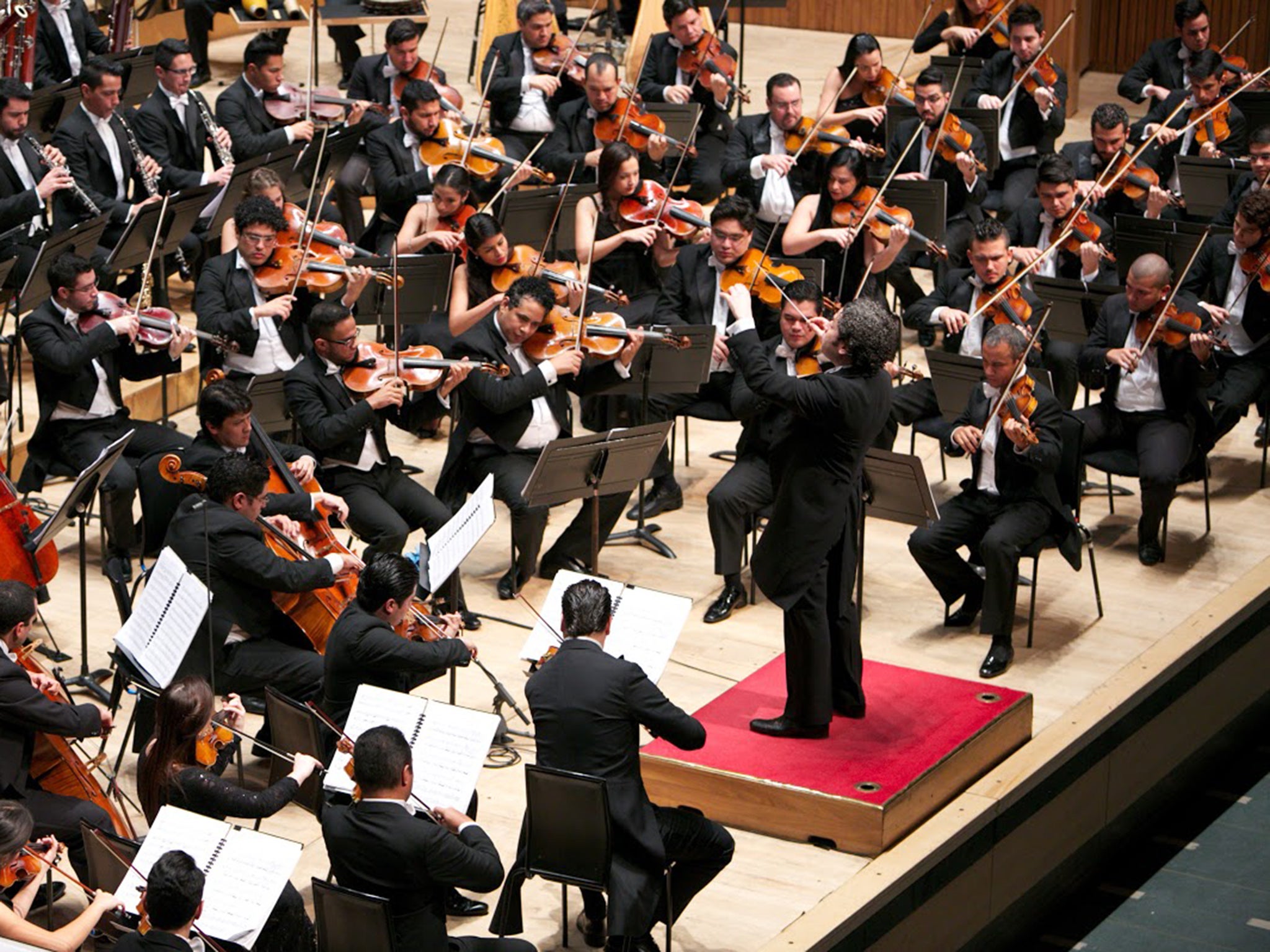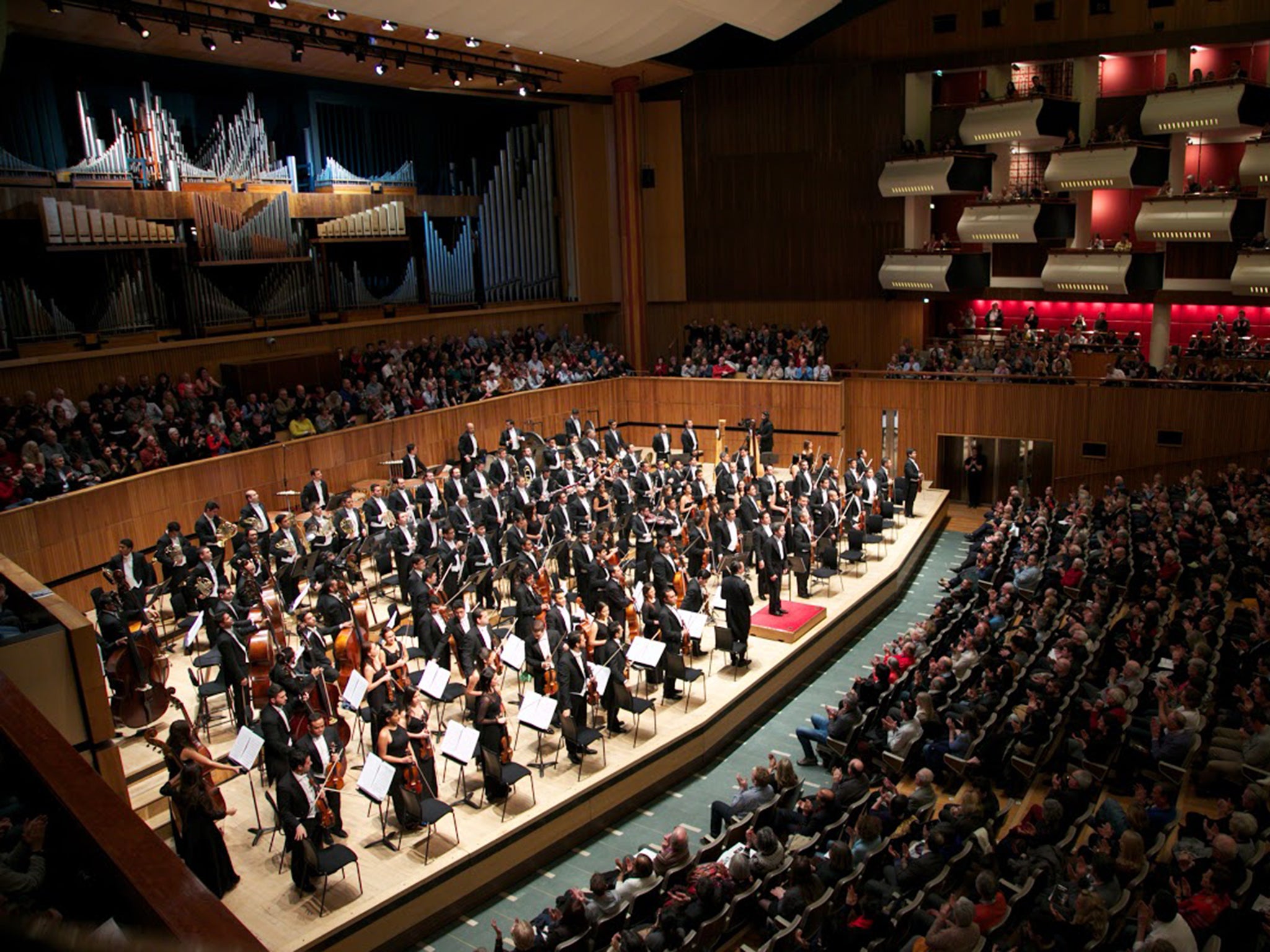Simon Bolivar Orchestra/Dudamel, Royal Festival Hall, review: Band tear into opening of Petrushka with great enthusiasm
For his first Southbank concert he’d chosen the two most electrifying symphonic works of the twentieth century

Your support helps us to tell the story
From reproductive rights to climate change to Big Tech, The Independent is on the ground when the story is developing. Whether it's investigating the financials of Elon Musk's pro-Trump PAC or producing our latest documentary, 'The A Word', which shines a light on the American women fighting for reproductive rights, we know how important it is to parse out the facts from the messaging.
At such a critical moment in US history, we need reporters on the ground. Your donation allows us to keep sending journalists to speak to both sides of the story.
The Independent is trusted by Americans across the entire political spectrum. And unlike many other quality news outlets, we choose not to lock Americans out of our reporting and analysis with paywalls. We believe quality journalism should be available to everyone, paid for by those who can afford it.
Your support makes all the difference.Each time Gustavo Dudamel brings the Simon Bolivar Symphony Orchestra of Venezuela back to the Southbank, it’s with an ever more ambitious programme, as befits the growing dizziness of his career. Now thirty-five, he’s seen his tenure as artistic director of the Los Angeles Philharmonic extended to 2022, and he’s induced that orchestra to diversify its activities far beyond its traditional remit.
Meanwhile awards continue to be showered on him; he was invited by John Williams to conduct the music for the opening and closing credits of the new Star Wars movie, and he’s just been signed up to conduct next year’s Vienna Philharmonic New Year’s Day concert. He still embodies that magic combination of inspiration and glitz which launched him into orbit in the first place.
For his first Southbank concert he’d chosen the two most electrifying symphonic works of the twentieth century, and he and his band tore into the opening of Petrushka with great enthusiasm. But this work requires hair-trigger precision for its effects to work – the joyful birdsong of the opening bars, pervaded by the hurdy-gurdy, and invaded by the excited tramp of feet, needs subtle layering of the sound, and here it didn’t get it. As the folk tale progressed – for this must come over as an intensely vivid story – the characters only emerged smudgily; the excellent pianist incarnating the ballerina, for example, didn’t get the space she needed in which to shine. The big tutti effects for strings and the concerted woodwind shimmer worked well, but there wasn’t enough finesse in Dudamel’s conducting to delineate the beauty of the work’s delicate structure, and the decibel-count seldom dipped below fortissimo.

The Rite of Spring represents a challenge of a different sort. In this work everything – even the pianissimo passages – depends on a massively driving momentum, but here that was often lacking, with the Round-dances of Spring being sluggish in the extreme. At times Dudamel did find the right pace and focus – the Dance of the chosen One had great verve, and the Sacrificial Dance a fine fury – but those sections which should have been exquisitely mysterious weren’t.
In fact the most successful part of this concert came with its encores: an elegantly-delivered finale of the Firebird, followed by a bit of sunlit fun from Venezuela. But of course Dudamel and his band are not here only to play. Their most important function – and the thing they’ve always done best – is to give a boost to the local outreach programmes which the Southbank Centre runs throughout the year.
As the Southbank’s music director Gillian Moore puts it: ‘I find it hard to contemplate any musical project without thinking who it’s for, and how they will benefit – and how we might expand the audience for it, beyond those who already love classical music.’ This performance may not have been international-league Stravinsky, but as a facet of Moore’s crusade it was invaluable.
Join our commenting forum
Join thought-provoking conversations, follow other Independent readers and see their replies
Comments